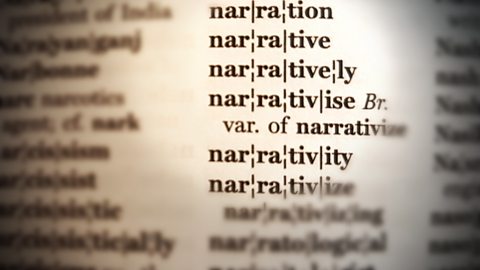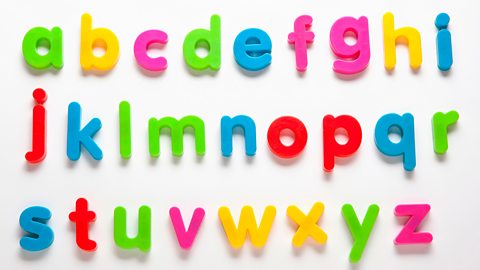Main content
The five words that make up news today
Aditya Chakrabortty has been investigating the words that made the modern world in Decoding the News. Here are the five words that you hear bandied around by politicians and experts on news programmes and see in the newspapers every day. But what do they actually mean and where did the terms come from?

1. Narrative
The old use of the word narrative is for fictional stories - chronology, plot and characters. The new use of narrative is as a framing device - a way of making sense of things or a way of directing behaviour. The use in political discourse today is all about 'controlling the narrative' or 'framing the narrative of a campaign'.

Narrative: the definition
When and why did 'narrative' become so important?
2. Shareholder value
A company is truly owned by its shareholders, and it's first and foremost for the shareholders' benefit that it must be run. The term shareholder value first emerged in 1965, but it took over a decade before it began to get around.

Shareholder value: the definition
A term which is both cause and alibi for so much of how our businesses behave.
3. Diversity
Diversity has helped shape Britain. In the last two decades the use of the word has skyrocketed. Diversity is a desirable condition or quality in a population, an ideal to which a society should aspire.

Diversity: the definition
When and why did 'diversity' become predominant?
4. Populism
Populism in its earliest use refers to the policies or principles of any of various political parties which seek to represent the interests of ordinary people. Its earliest recorded use was in 1981. Today the word populism refers less to political ideology than style.

Populism: the definition
Aditya Chakrabortty considers the origins and impact of 'populism'.
5. Transparency
Transparency was used by philosopher Rousseau in his idea that a good society is one in which conduct can't be veiled from public view. Consider how many of the big news stories of the past decade have emerged in the name of letting in daylight.

Transparency: the definition
How did 'transparency' become part of our everyday language?
-
![]()
Decoding the News
Aditya Chakrabortty investigates words that made the modern world.
-
![]()
Are we running out of sand?
Here are five reasons to worry about how much we use.
-
![]()
Seven of your biggest grammar bugbears sorted
We all have our moments. Here's our grammar cheat sheet.
-
![]()
Seven strange facts about the world's toughest plants
We've uncovered some surprising facts about some of our hardiest plants.




